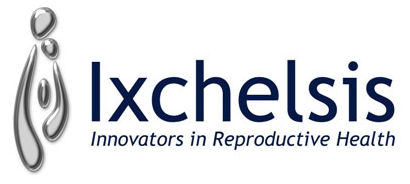预约演示
更新于:2025-05-07

Ixchelsis Ltd.
更新于:2025-05-07
概览
关联
1
项与 Ixchelsis Ltd. 相关的药物靶点 |
作用机制 OXTR拮抗剂 |
在研机构- |
原研机构 |
在研适应症- |
最高研发阶段终止 |
首次获批国家/地区- |
首次获批日期- |
6
项与 Ixchelsis Ltd. 相关的临床试验NCT03055806
A Phase 2b, 8-Week, Double-Blind, Placebo-Controlled, Parallel-Group Study to Evaluate the Effects of 3 Different Dose Levels of IX-01 on Intravaginal Ejaculatory Latency Time (IELT), Patient-Reported Outcomes, and Safety in Men With Lifelong Premature Ejaculation (PE)
A Phase 2b, 8-week, double-blind, placebo-controlled, parallel group study to evaluate the effect of 3 different dose levels of IX-01 on IELT and patient-reported outcome in men with lifelong PE.
Men with self-reported lifelong PE (International Society for Sexual Medicine (ISSM) definition) and in stable heterosexual relationship will undergo a 4-week run-in period during which they will be asked to attempt intercourse at least 4 times. Men with IELT ≤ 1 minute on at least 75% of attempts at intercourse during the no-treatment run-in period will be randomized for the double-blind phase of the study.
In the double-blind phase of the study, men will be asked to take study drug 1 to 6 hours prior to sexual activity. Men and partners will be asked to attempt intercourse a minimum of 8 times during the 8 week double-blind study treatment. The patient or partner will record the IELT on each occasion by use of a stopwatch.
Men with self-reported lifelong PE (International Society for Sexual Medicine (ISSM) definition) and in stable heterosexual relationship will undergo a 4-week run-in period during which they will be asked to attempt intercourse at least 4 times. Men with IELT ≤ 1 minute on at least 75% of attempts at intercourse during the no-treatment run-in period will be randomized for the double-blind phase of the study.
In the double-blind phase of the study, men will be asked to take study drug 1 to 6 hours prior to sexual activity. Men and partners will be asked to attempt intercourse a minimum of 8 times during the 8 week double-blind study treatment. The patient or partner will record the IELT on each occasion by use of a stopwatch.
开始日期2017-02-28 |
申办/合作机构 |
NCT02962531
A Randomized, Single-Dose, 3-Way Crossover Study to Evaluate the Relative Bioavailability of the IX-01 Caplet Formulation Compared With the IX 01 Aqueous Dispersion Formulation, and the Effect of Food on the IX-01 Caplet Formulation, in Healthy Male Subjects
An open-label, randomized, three-period, three-way crossover trial of single doses of IX-01 in 12 healthy male subjects. In each period, subjects will receive a single oral dose of 1600 mg IX-01, either as an aqueous dispersion in a fasted state, or as caplets in the fed or fasted state
开始日期2016-11-01 |
申办/合作机构 |
NCT02792647
A Double-blind, Randomised, Placebo-controlled, Parallel Group, Dose Escalation Study to Investigate the Safety, Toleration, and Pharmacokinetics of Multiple Oral Doses of IX-01 in Healthy Male Subjects
The purpose of this study is to investigate the safety and tolerability of IX-01 after multiple doses, and to determine the PK of IX-01 and activity of CYP3A4.
开始日期2016-05-01 |
申办/合作机构 |
100 项与 Ixchelsis Ltd. 相关的临床结果
登录后查看更多信息
0 项与 Ixchelsis Ltd. 相关的专利(医药)
登录后查看更多信息
8
项与 Ixchelsis Ltd. 相关的文献(医药)2020-04-01·The Journal of Sexual Medicine2区 · 医学
Objective and Subjective Measures of Premature Ejaculation: How Closely Do They Correspond and How Well Are the Subjective Measures Recalled?
2区 · 医学
Article
作者: Rosen, Raymond ; Althof, Stanley ; Harty, Brian ; Muirhead, Gary J. ; Osterloh, Ian H. ; McMahon, Christopher
2019-11-01·The Journal of Sexual Medicine2区 · 医学
Response to Letter to the Editor Regarding “Cligosiban for Premature Ejaculation: Success, Failure, or Insufficiently Tested?”
2区 · 医学
Letter
作者: McMahon, Chris G. ; Althof, Stanley E. ; Osterloh, Ian H. ; Muirhead, Gary J.
2019-08-01·The Journal of Sexual Medicine2区 · 医学
The Oxytocin Antagonist Cligosiban Prolongs Intravaginal Ejaculatory Latency and Improves Patient-Reported Outcomes in Men with Lifelong Premature Ejaculation: Results of a Randomized, Double-Blind, Placebo-Controlled Proof-of-Concept Trial (PEPIX)
2区 · 医学
Article
作者: McMahon, Christopher ; Osterloh, Ian H. ; Rosen, Raymond ; Althof, Stanley ; Miner, Martin ; Muirhead, Gary J. ; Giuliano, Francois ; Harty, Brian
100 项与 Ixchelsis Ltd. 相关的药物交易
登录后查看更多信息
100 项与 Ixchelsis Ltd. 相关的转化医学
登录后查看更多信息
组织架构
使用我们的机构树数据加速您的研究。
登录
或

管线布局
2026年02月08日管线快照
管线布局中药物为当前组织机构及其子机构作为药物机构进行统计,早期临床1期并入临床1期,临床1/2期并入临床2期,临床2/3期并入临床3期
其他
1
登录后查看更多信息
当前项目
| 药物(靶点) | 适应症 | 全球最高研发状态 |
|---|---|---|
Cligosiban ( OXTR ) | - | 无进展 |
登录后查看更多信息
药物交易
使用我们的药物交易数据加速您的研究。
登录
或

转化医学
使用我们的转化医学数据加速您的研究。
登录
或

营收
使用 Synapse 探索超过 36 万个组织的财务状况。
登录
或

科研基金(NIH)
访问超过 200 万项资助和基金信息,以提升您的研究之旅。
登录
或

投资
深入了解从初创企业到成熟企业的最新公司投资动态。
登录
或

融资
发掘融资趋势以验证和推进您的投资机会。
登录
或

生物医药百科问答
全新生物医药AI Agent 覆盖科研全链路,让突破性发现快人一步
立即开始免费试用!
智慧芽新药情报库是智慧芽专为生命科学人士构建的基于AI的创新药情报平台,助您全方位提升您的研发与决策效率。
立即开始数据试用!
智慧芽新药库数据也通过智慧芽数据服务平台,以API或者数据包形式对外开放,助您更加充分利用智慧芽新药情报信息。
生物序列数据库
生物药研发创新
免费使用
化学结构数据库
小分子化药研发创新
免费使用
